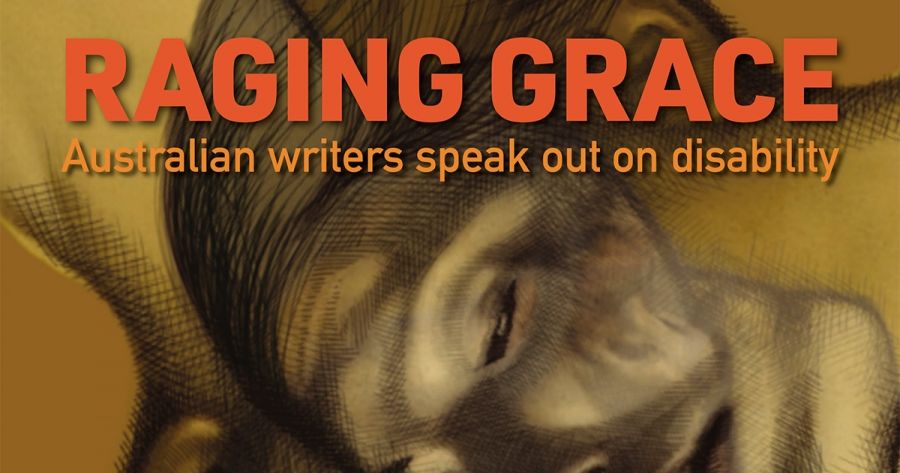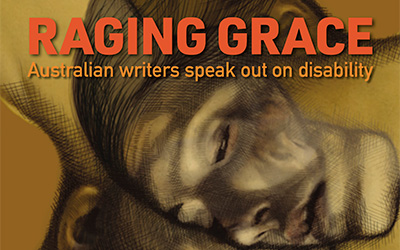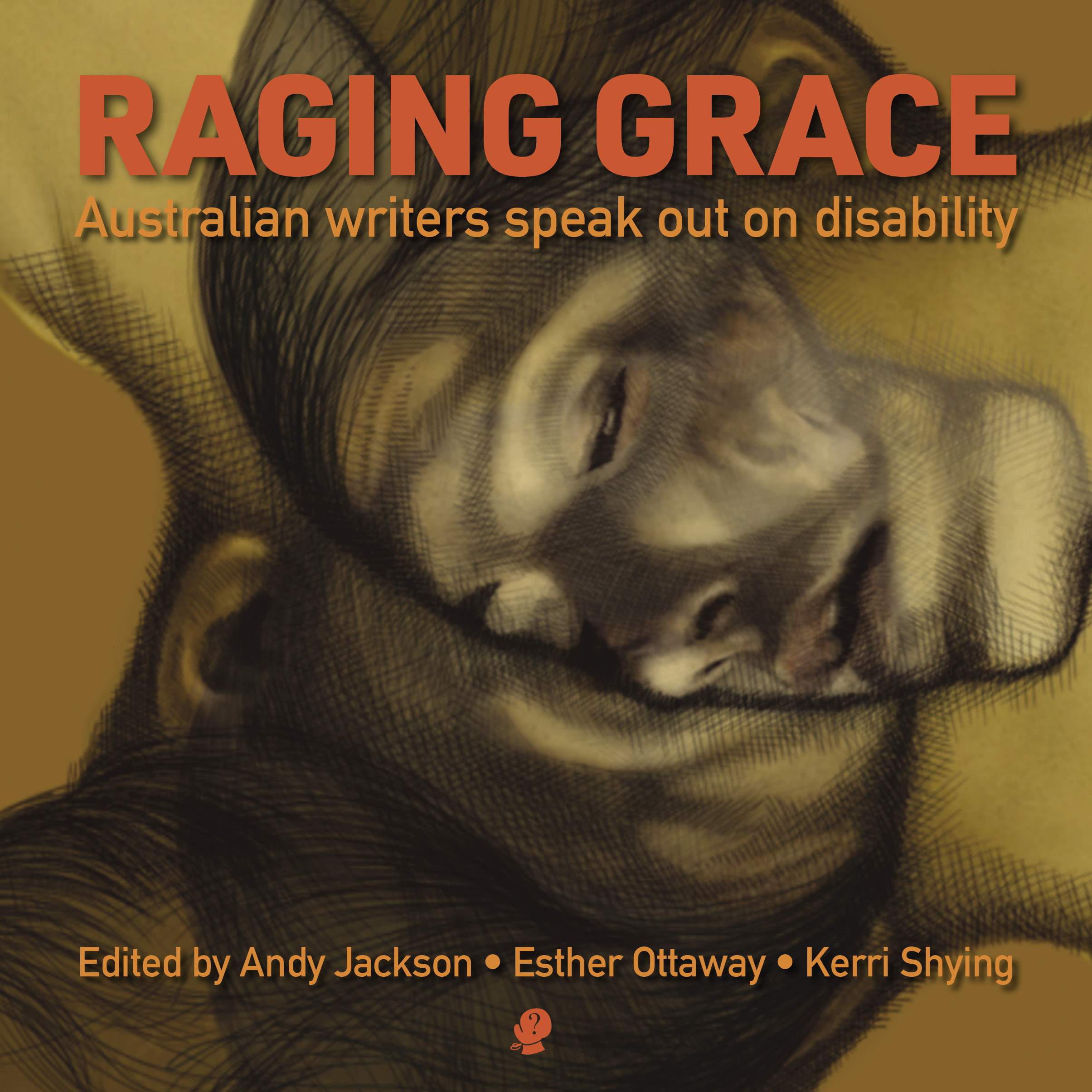
- Free Article: No
- Contents Category: Poetry
- Review Article: Yes
- Article Title: ‘Watching as fall’
- Article Subtitle: Poems of crooked beauty
- Online Only: No
- Custom Highlight Text:
In a 2010 interview, Tobin Siebers, the author of Disability Theory and Disability Aesthetics, argued that ‘[d]isability still seems to be the last frontier of justifiable human inferiority’. At the same time, he suggested, the evolution and success of modern art owed much to ‘its embrace of disability as a distinct version of the beautiful’: ‘No object has a greater capacity to be accepted at the present moment as an aesthetic representation than the disabled body.’ A central problem for Siebers was the disconnect between ‘two cultures of beauty’. Could the ‘aesthetic culture’ that celebrated disability influence the dominant ‘commercial culture’ that stigmatised it?
- Featured Image (400px * 250px):

- Alt Tag (Featured Image): Anders Villani reviews ‘Raging Grace: Australian writers speak out on disability’ edited by Andy Jackson, Esther Ottaway, and Kerry Shying
- Book 1 Title: Raging Grace
- Book 1 Subtitle: Australian writers speak out on disability
- Book 1 Biblio: Puncher & Wattmann, $29.95 pb, 119 pp
- Book 1 Cover Small (400 x 600):

- Book 1 Cover (800 x 1200):

- Book 1 Readings Link: https://www.readings.com.au/product/9781923099326/raging-grace--2024--9781923099326#rac:jokjjzr6ly9m
The voice in Raging Grace is multiple in every sense: all but a few of the anthology’s poems and essays are collaborations between two or more authors. Some of the speakers feel distinguishable: the two columns in ‘Awry’ suggest a dialogue between individuals with distinct biographies brought together by attempts at self-determination in an ableist context; the visual ‘ECT Tree’ by Anna Jacobsen and Gemma Mahadeo divides a trunk and branches into each writer’s contact with that controversial therapy. More often, however, voices braid, blur, overlap: ‘how do we protect the mutant from annihilation by the “normal’’’, for example, is a contrapuntal poem, using a double-helix shape and patterns of italicised and unitalicised text to tell a story both singular and plural – ‘a fierce kink in / meridians of knowledge / systems fixated on fixes / without a north’; in Beau Windon and Ruby Hillsmith’s ‘walking document’, ‘I, the searcher – muddled as a / playground at dusk’ is also ‘muddled’ at the level of author-ship, compounding the disorienting effects of moving in a disabled body through a world inimical to it. This multivocality, unpolished at times, reflects the series of workshops and meetings that generated the material in Raging Grace. As if listening in, we trace the contours of a marginalised group thinking through common problems while also witnessing one another.
Scattered throughout the anthology are essayistic pieces called ‘Rage’ and ‘Grace’ that read as manifestos, wishes, indictments, and lists of demands. Especially pointed is the criticism of the healthcare industry: Jacobsen argues that ‘doctors who give shocking treatment’ ‘are proliferating’ (‘Grace: Gardeners and Listeners’); ‘[a]ny doctor worth their salt would eagerly tap into my vast knowledge,’ laments Gale Sobott, ‘but doctors don’t’ (‘Rage: Mind the Gap’); in ‘Rage: Living Invisible’, Ottaway identifies the concerning under-representation of women in study populations for research that affects them. What unites these statements is a desire to be seen, heard, treated with dignity: ‘The future of health is empathy’ (‘Grace: Gardeners and Listeners’). That empathy, for some, is not the ‘present of health’ is an unsettling truth. One wonders what might change, what allyship might naturalise, if Raging Grace and works like it were school-syllabus staples.
The book’s subtitle – Australian writers speak out on disability – fails to emphasise that this is primarily a poetry anthology. Prose works are short and lyrical. More than coherent narrative, then, Raging Grace evokes disabled subjectivities with poetic concision, contradictoriness, and phrasing: ‘my body lets the bath unclasp its crooked beauty’ (‘Branches’); ‘it was only at night / that I sensed some terrifying possibility / / that there might be a song / that might belong to us …’ (‘The shamed body addresses its owner’); ‘Scar me with your cranial caesarean / swim to me, swim to me’ (‘Questing Beast’); ‘I know my body exists in places and that I am erased from perception’ (‘Stealth Mode’). Another frequent strategy is the reclaiming of derogatory language, checking its power to subjugate: ‘My inbox was crippled, in the way we mean it now, / as in abundant, brilliant’ (‘Dis-topia’); ‘yeah i’m that … / / uncomfortable mortality / that eugenic disposability / emergency ward striptease’ (‘Criptych: Joyride’); ‘She will transform again into a different / kind of monster, brave and dangerous, / forged by struggle into a pure and glowing shape’. Theodor W. Adorno wrote that ‘the poem proclaims the dream of a world in which things would be different’; Raging Grace reminds us that such change depends on examining categories of otherness.
I took Siebers’ Disability Aesthetics course at the University of Michigan in 2013, the year that the NDIS was legislated (Siebers died in 2015). I paid adequate attention. I didn’t know then that NDIS funding would assist my family in a life-altering way, or that I would be diagnosed with a psychiatric disorder for which I would receive another form of government support. The central thesis of Raging Grace, if accepted full-heartedly, is also the bridge between Siebers’ ‘two cultures of beauty’: the recognition that this binary is an illusion like the rest – convenient; escapist; pernicious irrespective of ‘ability’; catastrophic. ‘And who are these people,’ Jackson and Bron Bateman ask, ‘… simply watching as we fall?’ (‘Betrayal’).


Comments powered by CComment